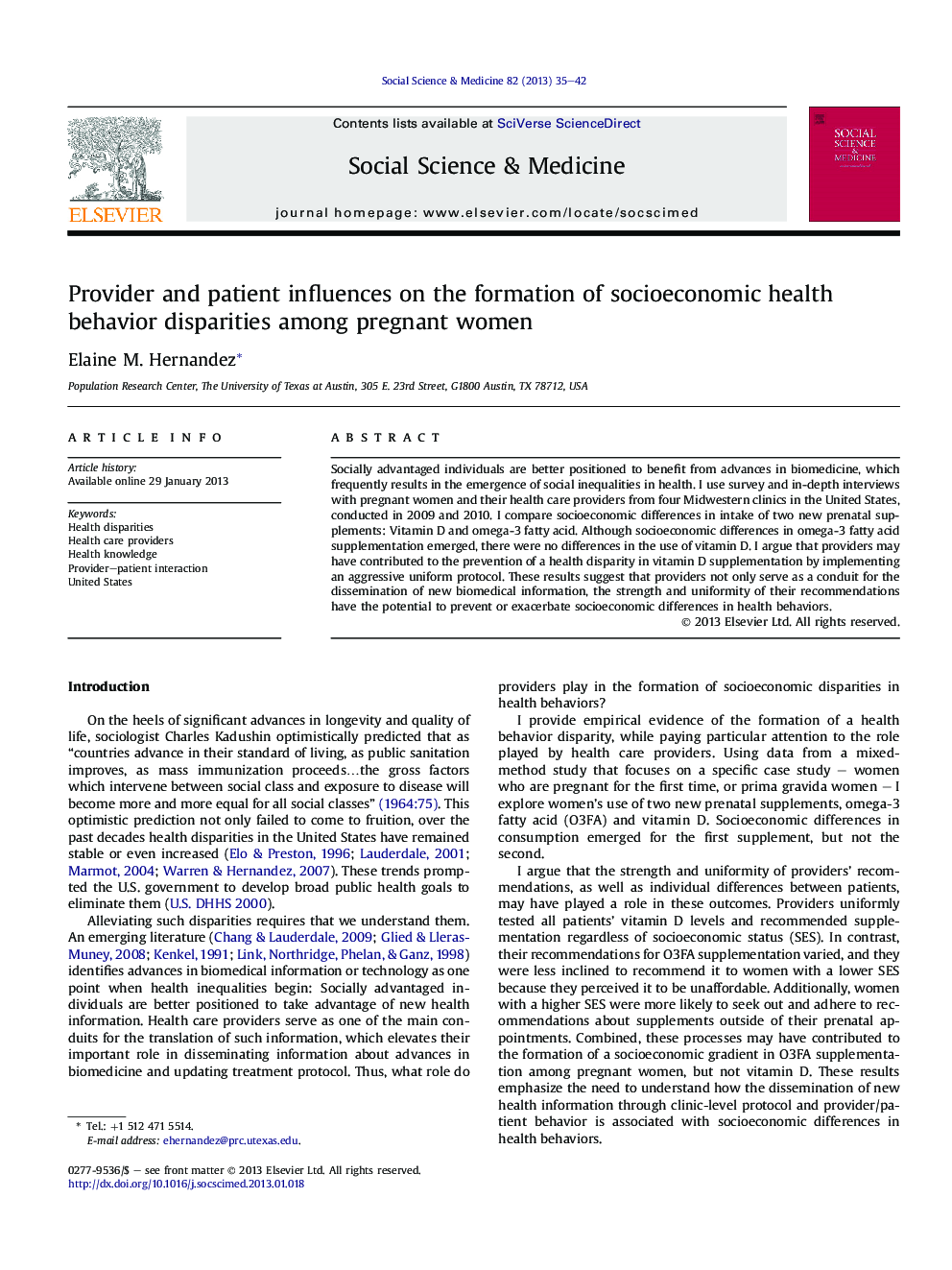| Article ID | Journal | Published Year | Pages | File Type |
|---|---|---|---|---|
| 952343 | Social Science & Medicine | 2013 | 8 Pages |
Socially advantaged individuals are better positioned to benefit from advances in biomedicine, which frequently results in the emergence of social inequalities in health. I use survey and in-depth interviews with pregnant women and their health care providers from four Midwestern clinics in the United States, conducted in 2009 and 2010. I compare socioeconomic differences in intake of two new prenatal supplements: Vitamin D and omega-3 fatty acid. Although socioeconomic differences in omega-3 fatty acid supplementation emerged, there were no differences in the use of vitamin D. I argue that providers may have contributed to the prevention of a health disparity in vitamin D supplementation by implementing an aggressive uniform protocol. These results suggest that providers not only serve as a conduit for the dissemination of new biomedical information, the strength and uniformity of their recommendations have the potential to prevent or exacerbate socioeconomic differences in health behaviors.
► Advances in biomedical information can precipitate the emergence of disparities in health behaviors. ► Providers serve as a conduit for new information when they translate it into professional recommendations. ► Clinic-level protocol and provider recommendations may contribute to differences in patient decisions about health behaviors. ► Using data from a mixed-method study of pregnant women living in the United States, I explore use of two new supplements. ► The strength and uniformity of provider recommendations may prevent or exacerbate the formation of health disparities.
